2019.07.03 CoStone Capital Views:
On June 1, the twentieth CoStone Master Forum themed with "Economic Transformation & Business Revolution" kicked off at the world's highest concert hall the Sky Concert Hall, located at the T7 building of One Shenzhen Bay in Shenzhen. Dr. Jia Kang and six other speakers from the academic and business circles were invited to share their views on business revolution.
On June 1, the twentieth CoStone Master Forum themed with "Economic Transformation & Business Revolution" kicked off at the world's highest concert hall the Sky Concert Hall, located at the T7 building of One Shenzhen Bay in Shenzhen. Dr. Jia Kang and six other speakers from the academic and business circles were invited to share their views on business revolution.
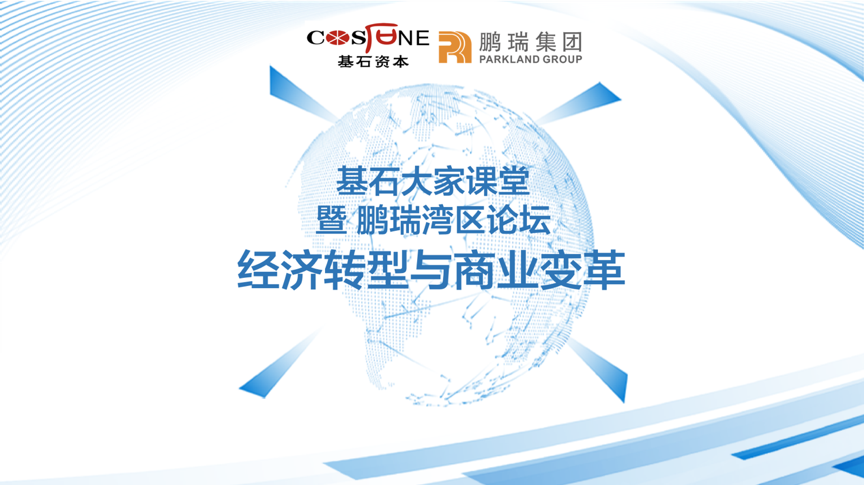
Dr. Jia Kang, Chief Economist of the China Academy of New Supply-side Economics and Former Director of the Chinese Academy of Fiscal Sciences, and Mr. Chen Weiru, Director of Alibaba Industry Internet Research Center and Professor at Hupan University, made the opening speeches. Later, Zhang Wei, Chairman of CoStone Capital, Xu Hang, Chairman of the Board of Parkland Group, Xu Dingbo, Professor and Deputy Provost at the China Europe International Business School (CEIBS), and representatives of CEIBS CEO Class 5, including Chen Fashu, Chairman of New Huadu and Yunnao Baiyao Group, Wang Shuifu, Chairman of Xizi UHC, and Jiang Xipei, Chair of the Board of Far East Holding Group, gave speeches on relevant topics.
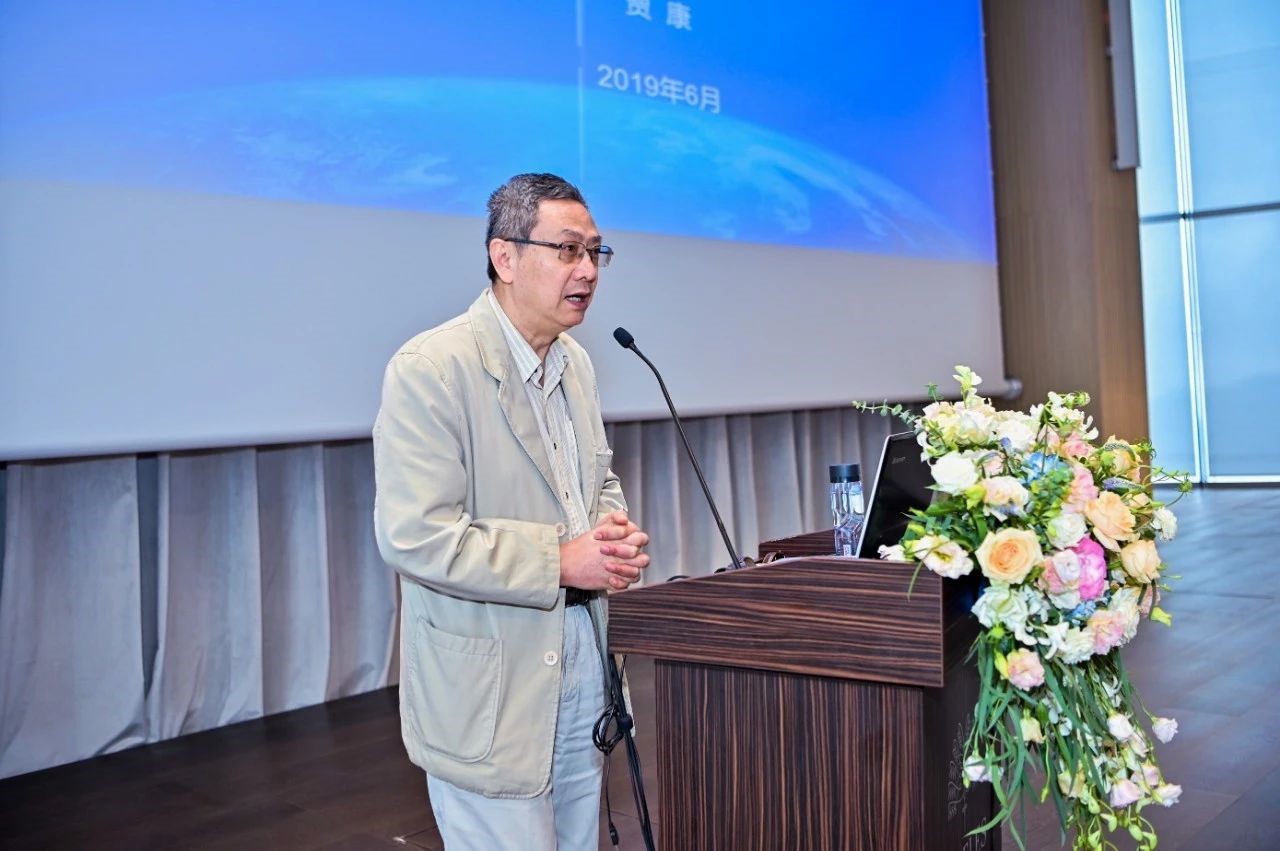
Dr. Jia Kang on The Current Economic Situation & The Global Trend and Corporates' Opportunities
Dr. Jia made an in-depth analysis of the current economic situation, the global trend and corporates' opportunities. His speech consisted of four parts: the change in China's principal contradiction and the supply-side structural reform; China's macro economy and feasible approaches to the development; China's relations with the international community and how to handle Sino-US relations; corporates' ways of investing under the New Normal.
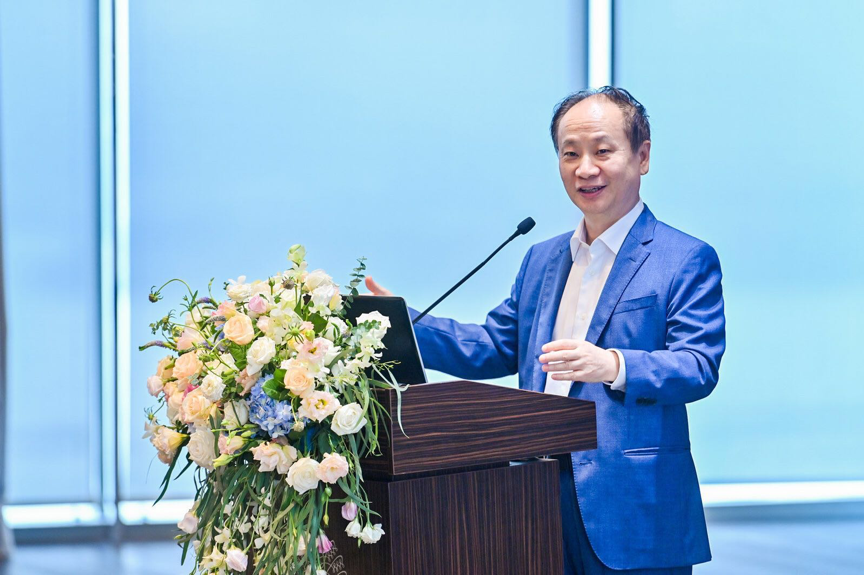
Xu Hang making an opening speech
After looking back on how he started Mindray and Parkland, Mr. Xu offered his insights into the development of China and enterprises, and the trade war between China and the United States. In his opinion, the reform and opening up, the market economy and the government's support for people pursuing a better life have made China's success. He stressed that to start a business, one must stay optimistic, have a vision, and dare to take risks.
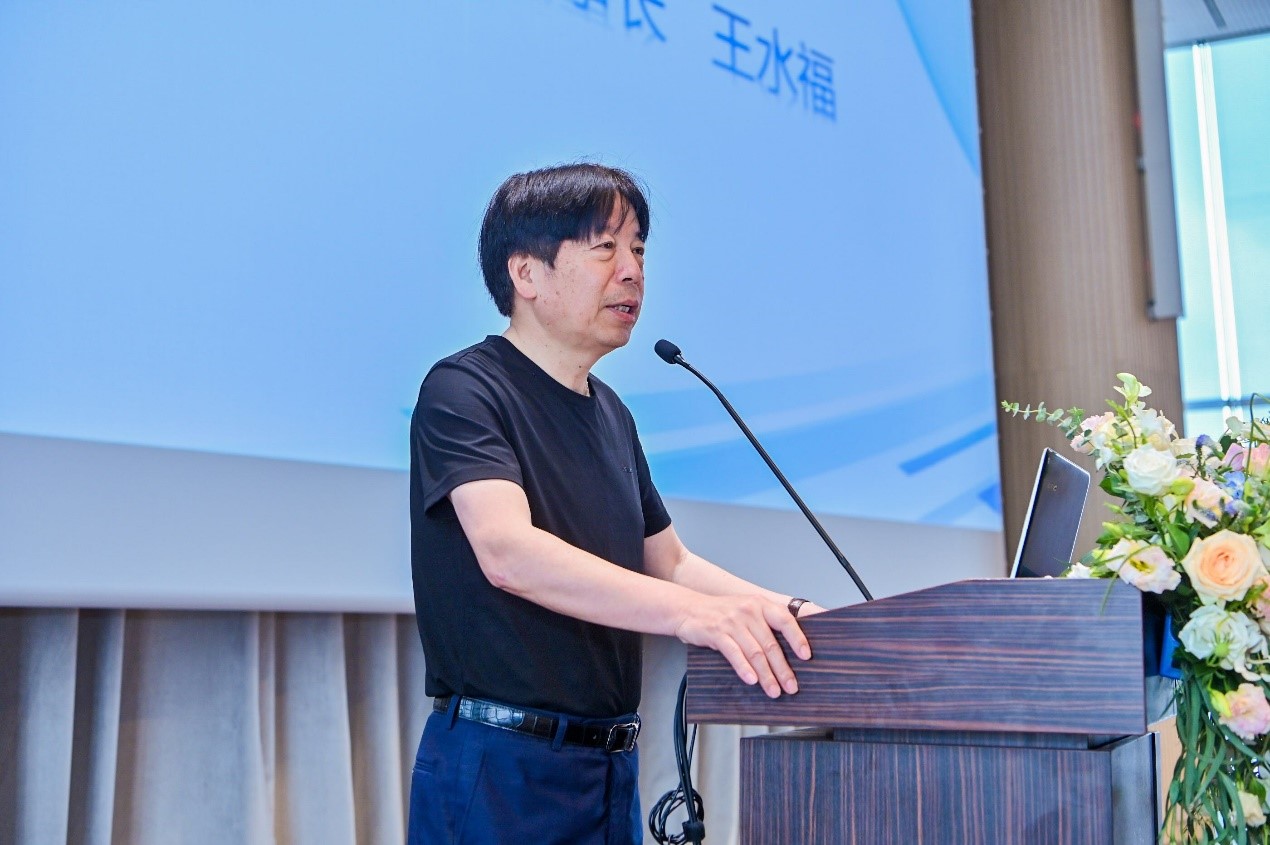
Wang Shuifu making a speech
Mr. Wang told his story of producing farm machinery parts and of how he ended up making aircraft parts, including those of COMAC(C919), Airbus, Boeing and Bombardier. As he said, the aviation industry, which seems to be an industry with enormous risks, is actually a very safe one as it has extremely strict requirements for product quality. He also pointed out that China should learn from Japan and Korea and create national automobile brands to upgrade the manufacturing industry. Jiangsu, Zhejiang and Shanghai’s rich resources could be fully utilized for building such a high-end national automobile brand, said Mr. Wang.
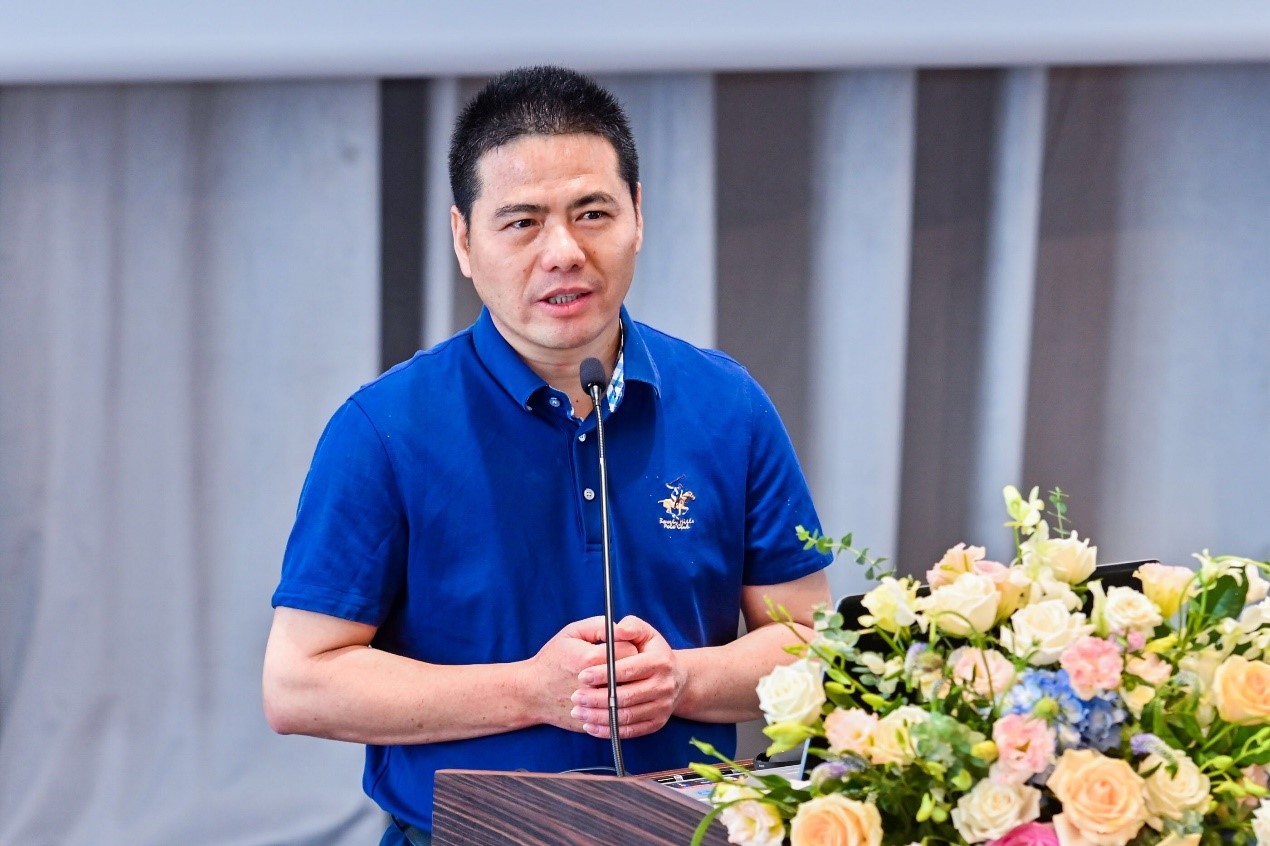
Jiang Xipei making a speech
Mr. Jiang expressed his thoughts on the new era. He held the belief that the competition among entrepreneurs would take up a large part of the competition in the future and that the Chinese government should give strong support to excellent Chinese enterprises in taking part in global competition. To put it specifically, private companies should be empowered, strong measures against fake and shoddy goods should be taken, and taxes and fees imposed on enterprises should be reduced. In the new era of commerce, entrepreneurs and individuals must establish a new commercial civilization, do good for others, which will in return give back benefits, build up confidence, and uphold a strong belief, added Mr. Jiang.
Speaker
Dr. Jia Kang
Dr. Jia Kang is a member of the National Committee of the CPPCC, and Distinguished Professor at Peking University, the Remin University of China and Wuhan University. Supported by the Heinz Program, he served as Visiting Professor at the University of Pittsburgh for one year in 1988. He is also the recipient of the Sun Yefang Economics Prize, the Mundell-Huangda Prize and the China Soft Science Prize. He once held the position of Director of the Chinese Academy of Fiscal Sciences for a long time. In 2013, Dr. Jia, acting as Director and Secretary General, initiated and set up the China Academy of New Supply-side Economics and the China New Supply-side Economist 50 Forum, aiming for building a think tank and a platform for interdisciplinary and cross-department academic exchanges.
Prof. Chen Weiru
Holding a PhD in Strategic Management from Purdue University, Dr. Chen Weiru is Professor of Strategy at CEIBS. Dr. Chen's interest areas of teaching include industry and competition analysis, business model innovation, and strategy of China. Before joining CEIBS, he taught strategy at INSEAD. He earned the Best Teaching Prize from the Krannert School of Management, Purdue University in 2002, the INSEAD MBA's Best Teacher Award in 2005, the INSEAD Deans' Commendation for Excellence in Teaching in 2011, and the CEIBS Best Teaching Prize in 2013.
Xu Hang
After graduating from the Department of Computer Science, Tsinghua University, Xu Hang was admitted to the Department of Electrical Engineering for studying biomedical engineering in 1984, and then he obtained his EMBA from CEIBS in 2002. He is the recipient of the 2005 Shenzhen Mayor Award and the initiator of Pengrui Qihang Public Welfare Foundation. Xu Hang used to be Chairman of Mindray and now he has joined Parkland Group as Chairman of the Board. He is also a member of the Governing Board of the Chinese University of Hong Kong, Shenzhen. Xu Hang ranked the fourth on the Forbes China's List of China's 50 Richest People in Healthcare with a fortune of $16.3 billion on August 3, 2020.
Wang Shuifu
Being an ordinary worker at the beginning, Wang Shuifu now is Chairman of Xizi UHC, Member of the Council of the China Elevator Association, and Deputy to the 13th People's Congress of Zhejiang Province. He ranked the 531th on the 2019 LEXUS•Hurun China Rich List with a fortune of ¥7.5 billion (approx. $1.15 billion) and the 2276th on the Hurun Global Rich List 2020 with a fortune of ¥8 billion (approx. $1.2 billion).
Prof. Xu Dingbo
Xu Dingbo is Professor of Accounting and Deputy Provost at CEIBS and Secretary General of the CEIBS Education Development Foundation. Prof. Xu once joined PICC as Director of the Board. Now he holds positions of Vice Chairman of the China Association of Chief Financial Officers and Executive Director of the Editorial Board of China Management Accounting Review.
Chen Fashu
Chen Fashu is the founder and Chairman of New Huadu, Vice Chairman of Wuyishan Travel, Chairman of Zijin Mining, and Honorary Member of the Board of Peking University. He ranked the 77th on the 2020 New Fortunes 500 Richest Chinese People List with a fortune of ¥30.05 billion (approx. $4.58 billion).
Jiang Xipei
Jiang Xipei is Chair of the Board of Far East Holding Group, a senior economist, Deputy to the 16th CPC National Congress, and Vice Chairman of the Global Alliance of SMEs, the Asian Manufacturing Association and the China Enterprise Directors Association. He is the recipient of the titles of Top 10 Private Entrepreneurs in China and Champion in China's Industrial Sector.
Rewritten by Jiang Xiaomei, Edited by Li Yunzhen, Du Zhixin
The year 2019 marks the fortieth anniversary of China’s Reform &Opening-Up, once again, we meet at the turning point of history. What’s the next step for the game, is there any clear guidance? The answer is affirmative.
Our country is enjoying a good momentum of development, which does not come from the Washington Consensus nor the Beijing Consensus. China’s experience has proved that both the visible hand and the invisible hand are crucial: the visible hand, stands for the government-led reform, and would yield benefits for reform and opening up; the invisible hand, stands for the Marginal Power represented by the private sector, and would improve economic efficiency and tax collection, create jobs and employment opportunities.
Provided that we want to protect and expand the benefits form reform, three simple but mandatory agreements are to be made and followed: No.1 Private ownership must be recognized, protected and treated equally with public ownership constitutionally, both ownerships are scared and inviolable;No.2 Make further clarification of the principal position of market economy, “deepen economic system reform by centering on the decisive role of the market in allocating resources”, as President Xi addressed in the third Plenary Session of the 18th CPC Central Committee;No.3 Implement the guiding principles of “comprehensively promoting law-based governance” of the fourth plenum. The rule of law is essential for economic growth, irreplaceable to protect private ownership, and necessary to encourage innovation and entrepreneurship.
Above are three rules for us to avoid falling into the Middle-income Trap. Assuming that we are breaking systematic barriers to private enterprises’ participation in market economy, and boosting innovation and entrepreneurship of our society, then we are heading towards a promoting direction. We are marching in the path of light, regardless of the ups and downs of Sino-US relationship, the drop in GDP growth rate, or the monetary policy.
These principals also apply on knowing how better to run a business: don’t be hedged by rules and regulations at the beginning, pay more attention to your survival, and you’ll learn more when you start your second business.
For many years, Huawei has been the only Chinese company on the list of the Top 50 R&D Spenders. Regardless of the economy and its income, what Huawei has been doing is investing in its future, dedicated to R&D, continuously and resolutely. This provisional work underscores Huawei’s accomplishments, making Huawei anindustry leader.
So, there are standard answers on how to run a company,which could be summarized as concentration and professional dedication, continuous investment on innovation and trying harder in R&D. Entrepreneurship is also important, every single company needs entrepreneurs to push aside all obstacles and difficulties, to implement strategies and ideas. We, as investors, are destined to look for such outstanding entrepreneurs and their companies, invest in them and partner with them.
At this key point of history, a country, a company, or asingle individual, will all need to find the right path. Four decades after the Reform and Opening-up, it’s time to learn from our experience and stop “wadding across
